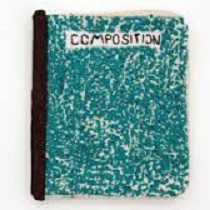
As musicians and artists, we can be pretty neurotic when it comes to the issue of voice. “Am I finding my voice? What is my voice? Do I even have a voice?” We’re always looking for a way to get that artistic edge.
Some people describe an inward journey. “Find your muse. Write from that place. Whether it is a place of contentment, or pain, or hope, find it and write in it.” And this is fine if the emotions you access don’t interfere with your ability to do work, but it may not be very healthy to visit the dark recesses of your soul every time to want to create, nor, on the other end of the emotional spectrum, very practical to conjure jubilant exaltation as part of your artistic routine.
Other people take an analytical approach. “Who are you? What makes you unique? What do you need to say?” But this can lead to a kind of scripted self-awareness that can impede real creativity. “I’m quirky, so my music should be quirky. And this is not quirky. I like it, but it’s not me. Should I let myself write it?”
Many more think it’s a matter of being as different as possible. “Look at what everyone else is doing, and DON’T DO THAT.” And this works as long as you don’t know your field very well. But as you absorb influences it’s only a matter of time before you realize it’s all been done before, and you’ll risk getting blocked. Or even worse, out of fear of realizing you’re not as original as you’d like to think you are, you’ll give up being curious about what’s out there. You’ll give up growth and learning.
I spent years wrestling with these kinds of questions before coming to the realization that the question “how do I find my voice” is somewhat flawed. Forget analyzing the deeper implications of your artistic choices. Forget writing manifestos to explain your ideas. It doesn’t matter. There’s things you do and there’s things you don’t do, and that’s because either you like them or you don’t.
I realized there’s no use climbing to the top of the mountain and sitting in meditative repose until the moment of inspiration strikes, and then, in a burst of creative energy, trying to document my newly discovered Jaredness in music. When the euphoria wears off, it’s still just going to be me and whatever I’m working on, and I’ll still have to apply my skills and my attitudes towards the material at hand.
And the truth is that our natural uniqueness comes across in our work through what we choose to do or choose not to do. This truly is the essence of one’s voice. There’s no need for analysis or reflection except to ask “Do I really like this, or am I doing this out of habit or fear?”
Instead of thinking about voice like it’s the culmination of a mystical journey or looking at where the crowd is and running in the opposite direction, why don’t you imagine that it’s like developing a photograph of yourself? The subject matter is a given: it’s you. And it’s your job to make sure the photograph comes out as clear as possible. It’s only when your photograph is blurry that it looks like all the other blurry photographs. But clear photographs are as unique as the people who took them.
So in a sense all work is autobiographical. If we are honest, we can only say about the world what we believe to be true. But this approach requires bravery. You have to believe that you are a unique and beautiful person, even if you can’t say why. You have no manifesto or ideology to hide behind when people criticize your work, no grand reason why people should like what you do.
It requires a commitment to the process. It requires looking at every relationship, from the big picture to the smallest detail, and asking the same basic questions. What’s working? What’s not working? What can I add to make this better? What can I subtract to make this better?
You can’t let fear trick you into doing something you don’t like because you think it will make you more unique. It will never work. The people we hail as visionaries were simply honest with themselves about what they liked and didn’t like. They knew a lot of music and understood what it meant to have a personal relationship with every detail. And they worked over those details in their music until there was nothing they didn’t like.
It’s more important to be genuine than to be original. You have no idea what makes you unique. It’s unknowable, unless you know everything. But you do know what you like, and there’s no limit to the sensitivity you can develop between the relationships of the details of your work. As you become sensitive to more relationships, your task is to form opinions about them free from habit or fear. This is the process of developing your photograph to an ever finer resolution.
And eventually your photograph will be so crisp, so clear that people will say that you have a voice. They will say that you climbed the mountain. They will say that you stand out from the crowd. But you never moved. You never changed. You just got better than anyone else at saying “this is cool.”